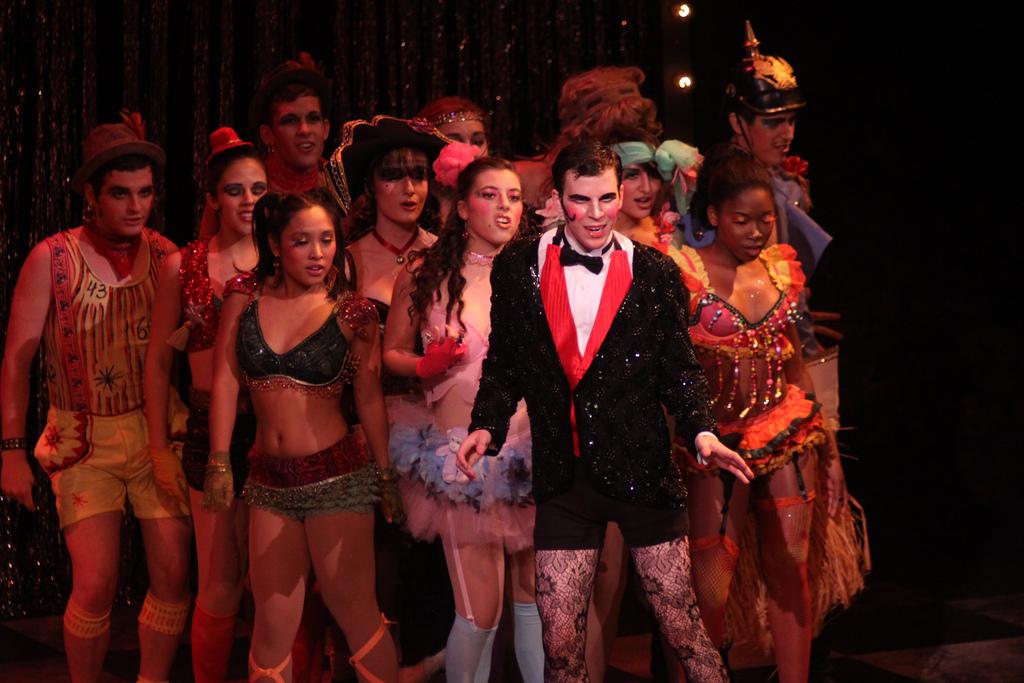There are many dramatic tricks to catch an audience’s initial attention. You can try bombastic music, eye catching stage design or colorful costumes. “Cabaret,” the latest stage production from the DVC drama department, decided to use a more unorthodox approach to grab the audience’s attention.
That approach revolved largely around lingerie. Lingerie on women, lingerie on men, lingerie on women who dress like me, lingerie on men who dress like women, and, in one case, lingerie on a gorilla, who’s gender, due to my lack of knowledge regarding the anatomical differences between male and female gorillas, will remain in question.
“Cabaret” takes place during the time surrounding the rise of Hitler and tells the tale of Clifford Bradshaw, played by John Di Giorgio.
Cliff is an American writer who has traveled to Berlin in the hopes of finding inspiration for his novel which he has yet to start. Along the way he makes acquaintances with Nazis, prostitutes and showgirls.
The story of “Cabaret” really excels at telling multiple smaller stories that are all tied together through the network of acquaintances that make up the cast of the play.
Whether it is the story of Clifford and his love affair with British singer Sally Bowles (Kaciah Hopper) or the story of the elderly Fraulein Schneider (Elizabeth Curtis) and her doomed relationship with Jewish shopkeeper Herr Schultz (Daniel Barrington Rubio), each story told in “Cabaret” brings humanity to the over the top setting.
You can think of “Cabaret” as a stereotypical hooker with a heart of gold and a keen interest in the socio-economic effects of the Third Reich on the people living in Berlin at the time.
In this case, the provocative eye candy and glamorous lighting fixtures on stage are all vanity. Just like you don’t go to a burlesque for the comedy bits, you shouldn’t see “Cabaret” just for the skin because what made “Cabaret” truly captivating was everything but the racy outfits, and what else is more important in a musical than the singing?
For “Cabaret,” the musical numbers are top notch, with each one carefully choreographed and voiced by some of the best talent I have seen from DVC drama.
I was very impressed with the work Elizabeth Curtis, whose singing has been excellent in every play I have seen her in. Whenever she belted out a song in “Cabaret,” the theater got just a little bit smaller as every note sounded like it was sung by a professional opera star.
Along with the voice work of Radek Antczak, who plays the flamboyant master of ceremonies, and Hopper, the cast of “Cabaret” has enough vocal talent to impress any audience.
The one complaint I can levy against the show was the sometimes jarring accents used by the actors. While I know that most, if not all, of the cast are probably native English speakers, sometimes the German accents dipped into what sounded Russian, but this is a minor gripe that doesn’t take away from the overall experience.
While “Cabaret” will certainly be hard to top for DVC drama, this show has only heightened my enthusiasm for the rest of the season.
Contact Troy Patton at [email protected]






































































